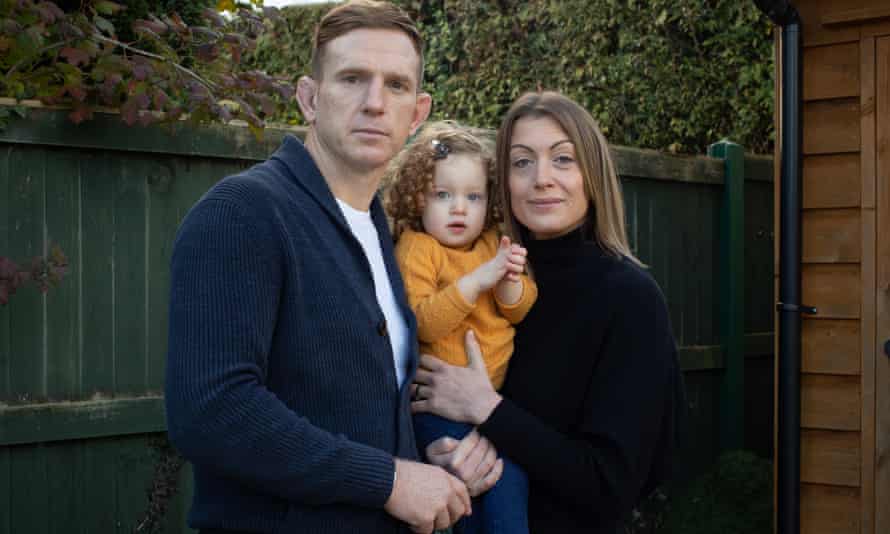[ad_1]
The family of Nobby Stiles have become ambassadors for a new charity launched by the families of former football and rugby players who have been diagnosed with dementia. Head for Change unites the two sports and aims to provide support for others with neurodegenerative conditions they believe were caused by their careers. The charity will also seek to empower independent research into the effects of brain injury and to campaign for safer practice.
In late 2020, football and rugby were devastated by further diagnoses of dementia in their former players, including England’s 1966 World Cup winner, Bobby Charlton, Steve Thompson, who won the Rugby World Cup with England in 2003, and the former Welsh rugby international Alix Popham. Head for Change’s aim, first and foremost, is to leave behind the antagonism that has defined the narrative so far between player, science and governing body and to find a unity of purpose.
“We want to be part of the solution,” says Dr Judith Gates, one of the trustees, whose husband Bill, a former Middlesbrough defender, has dementia. “We are not part of the blame game. We really want to be a coordinating group that will work with whoever will work with us. We don’t want any more calls to action. We think it’s time for action.”
Among the foundation’s first initiatives is the Head for Change Rugby Ride Challenge, a 24-hour cycle ride in conjunction with Zwift, the virtual cycling app. Popham will be leading the event. Popham will be joined by Geraint Thomas, winner of the Tour de France and double Olympic champion, and a hundred former rugby internationals. Popham and Thomas aim to ride the full 24 hours, from 8am to 8am on 6 and 7 March.
Head for Change has enlisted the support of ambassadors from across the world of sport, entertainment and politics, with Chris Bryant MP a notable advocate who is chairing the cross-party committee currently looking into brain injury in the UK. Their aims are three-fold, the first being to establish support for players and, just as importantly, their families.
This is particularly relevant for rugby, the recent diagnoses issued to players barely in their 40s with young families. Mel Bramwell-Popham, Alix’s wife, is another trustee. With her husband’s diagnosis in April last year, not to mention the trials of the previous year as his symptoms developed, she found herself having to juggle the demands of mother, businesswoman and carer, all the more complicated by lockdown and her own contraction of long Covid. The Pophams had to break the news of Alix’s diagnosis to his two teenage daughters, while bringing up their youngest, aged one at the time. Head for Change aims to bring all such families together into “huddles” to support each other.
As important as any of this, at least in terms of the viable future of each sport, is progress on the research and development front. “What we’ve discovered is that there’s so many silos,” says Bramwell-Popham. “We’ve spoken to different people in this country who don’t know what the other is doing. We want to use Head for Change as a call to action. Scientists, governing bodies, we want them to come and work with us, come and be part of the solution.”
Progress is being made in a number of areas, but a unity of direction between often competing factions might help accelerate the necessary developments. Part of the problem is the relationship between funding and vested interest. Gates has helped to establish a parallel organisation, the Repercussion Group, a consortium of independent scientists who aim to establish an alternative conception of head injury to that espoused by the conservative Concussion in Sport Group.

Meanwhile, the same old practices are being repeated, which is where the education comes in. Dr Sally Tucker, the third trustee, is a surgical registrar whose 71-year-old father Bill, a former professional footballer, was diagnosed eight years ago. “Governing bodies accept there is a potential link,” she says, “We need to delve into more evidence. That’s the scientific approach. But we cannot expose more players to years of potential harm in the meantime.”
One of the greatest challenges facing those who advocate a shift in the established paradigm is the native appetite of young players for the fray, coupled with the sense that any threat in the future is distant and somehow removed from who they are now. It is the message of those from that same future that is the most poignant.
“I do not want my descendants to go through what Bill is going through,” says Dr Gates. “When Bill watched the [Alan] Shearer documentary 9 [aired in 2017], I turned to him and said: ‘If you’d known what you know now, would you have played football?’ And he said: ‘I would have stopped in a heartbeat. Nothing is worth what you lose.’”
Head for Change’s mission is to avert such a fate for as many of today’s players as possible.
[ad_2]
Source link